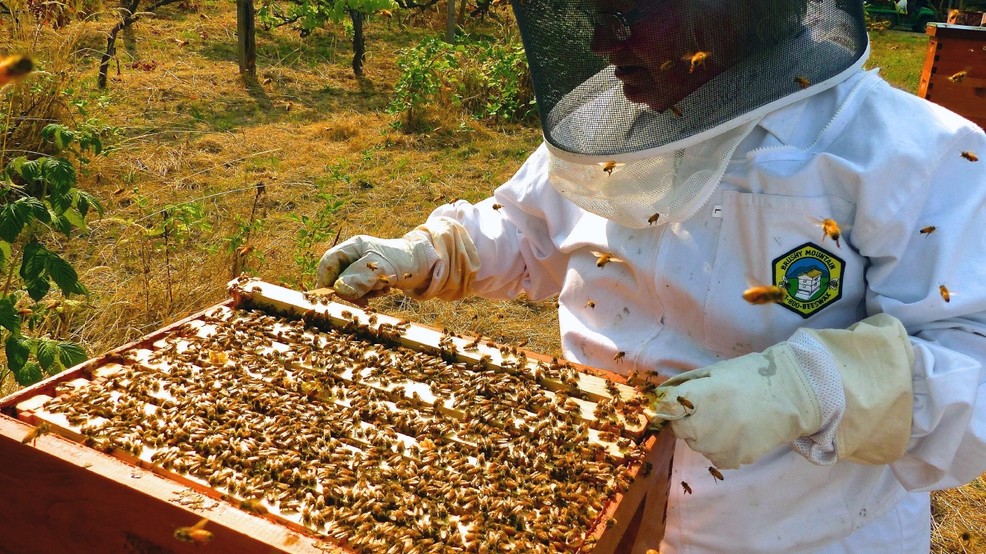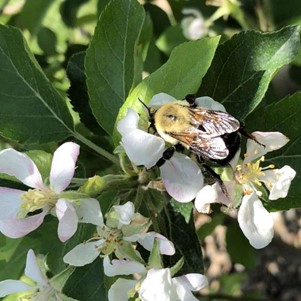Beekeepers report honey bee colony collapse of 105,240 colonies since start of the year
By: Jennifer Weaver
This Aug. 2, 2015 photo taken in Langley, Wash., shows a beekeeper pulling frames from a box to check honey and larvae production. Marking the hives and frames with a registered brand is one way to recover stolen hives. Opportunistic “bee rustlers” bolster their honeybee numbers with pilfered hives and frames. Bee hive burglaries are difficult to prevent but there are a number of ways to catch a thief. (Dean Fosdick via AP)
(KUTV) — The honey bee plays an important role in the sustainability of an ever-growing population that relies on its pollination for crops that feed the world.
In recent years, honey bee colony totals dropped to 2.59 million in 2016, the same year that 114,000 colonies collapsed, the largest loss to colony collapse disorder in the relatively short period the United States Department of Agriculture (USDA) has been compiling the bee report.
The USDA issued a press release Monday that stated beekeepers reported the loss of 105,240 colonies to colony collapse disorder during the early months of this year, a 76% increase from last year, and the highest total since 2016.
The cause of colony collapse, when worker bees abandon a hive and leave behind a queen and plenty of food, is unknown. The phenomenon was first reported in 2006, the release said.
The annual Honey Bee Colonies report, based on a survey of beekeepers who have at least five colonies, said there were 2.88 million colonies in the United States on Jan. 1, up 8% from 2019. Honey bee colonies lost for operations with five or more colonies from January through March 2020, was 399,570 colonies, or 14%. The number of colonies lost during the quarter of April through June 2020 was 252,630 colonies or 8%.
Varroa mites, a parasite of bees, were again the top stressor of colonies. When it collects data for the report, the USDA asks about varroa mites, other pests and parasites, disease, pesticides, and other stresses.
Researchers believe colony collapse is driven by a variety of factors, including disease-causing pathogens. Beekeepers lost 44% of their colonies in the year ending this April 1, said the nonprofit Bee Informed Partnership, the second-highest rate since the group began doing surveys in 2006, the release said.
https://kutv.com/news/local/beekeepers-report-honey-bee-colony-collapse-of-105240-colonies-since-start-of-the-year
________________________________________________________________________________








